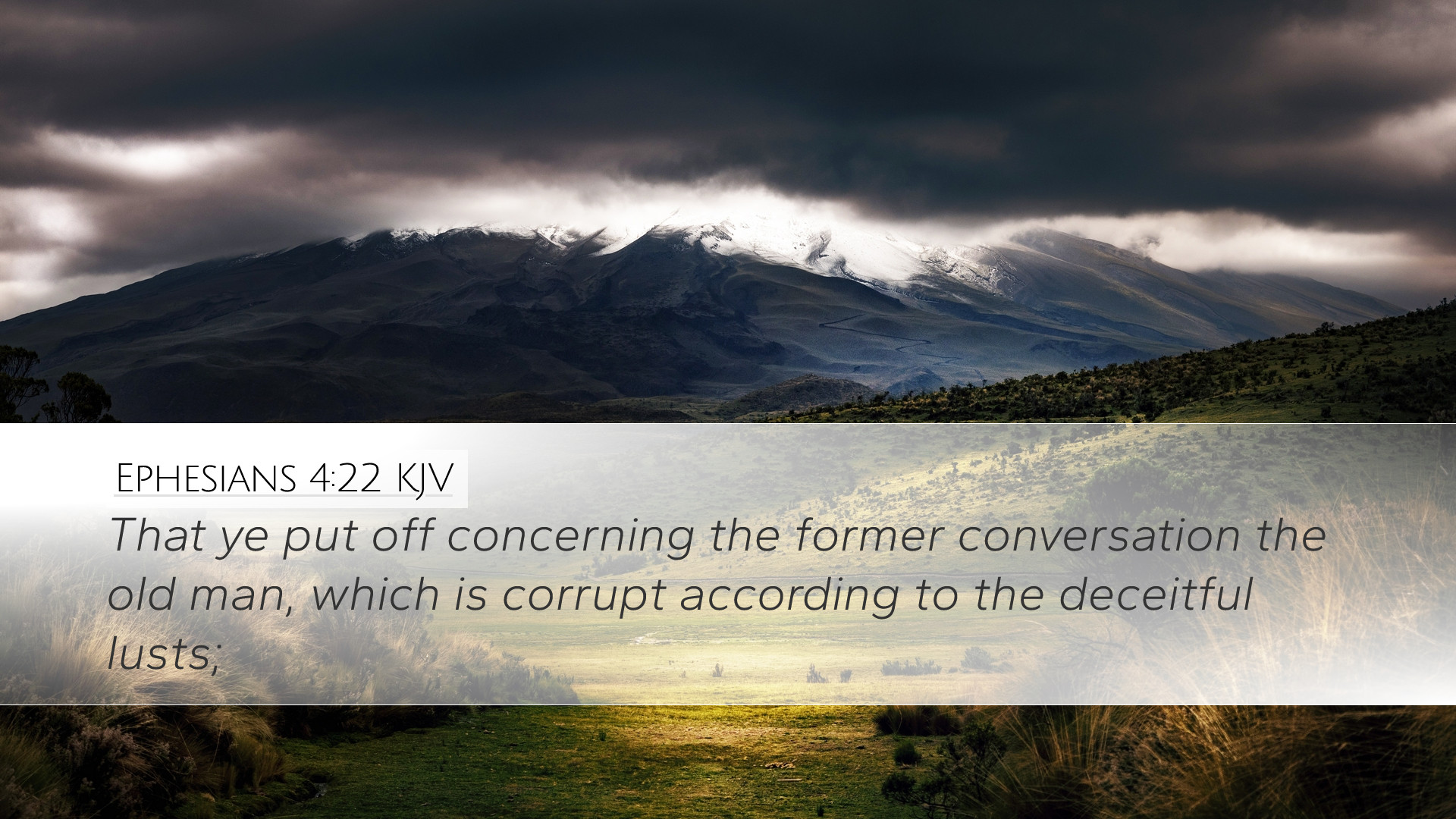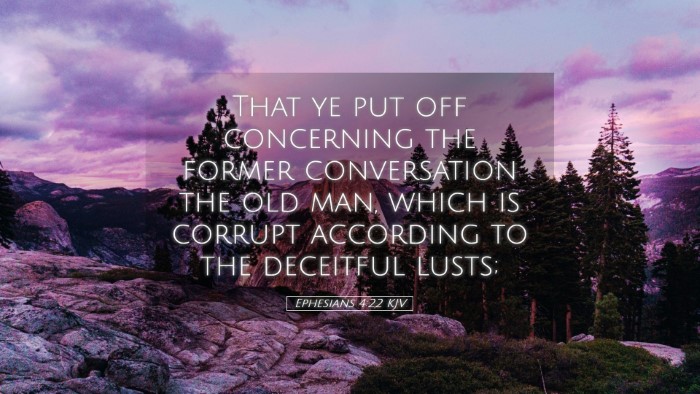Old Testament
Genesis Exodus Leviticus Numbers Deuteronomy Joshua Judges Ruth 1 Samuel 2 Samuel 1 Kings 2 Kings 1 Chronicles 2 Chronicles Ezra Nehemiah Esther Job Psalms Proverbs Ecclesiastes Song of Solomon Isaiah Jeremiah Lamentations Ezekiel Daniel Hosea Joel Amos Obadiah Jonah Micah Nahum Habakkuk Zephaniah Haggai Zechariah MalachiVerse
Ephesians 4:1 Ephesians 4:2 Ephesians 4:3 Ephesians 4:4 Ephesians 4:5 Ephesians 4:6 Ephesians 4:7 Ephesians 4:8 Ephesians 4:9 Ephesians 4:10 Ephesians 4:11 Ephesians 4:12 Ephesians 4:13 Ephesians 4:14 Ephesians 4:15 Ephesians 4:16 Ephesians 4:17 Ephesians 4:18 Ephesians 4:19 Ephesians 4:20 Ephesians 4:21 Ephesians 4:22 Ephesians 4:23 Ephesians 4:24 Ephesians 4:25 Ephesians 4:26 Ephesians 4:27 Ephesians 4:28 Ephesians 4:29 Ephesians 4:30 Ephesians 4:31 Ephesians 4:32

